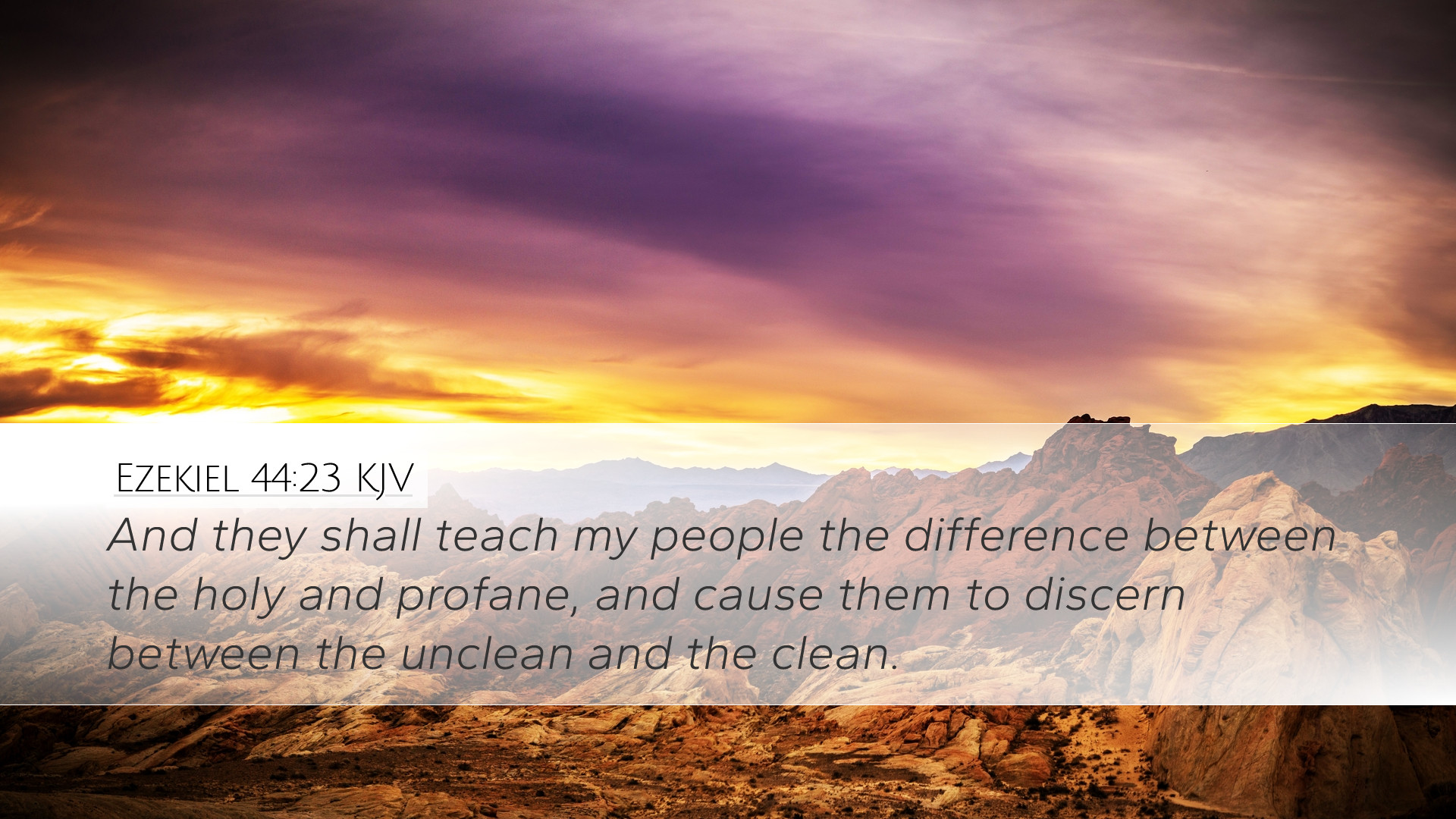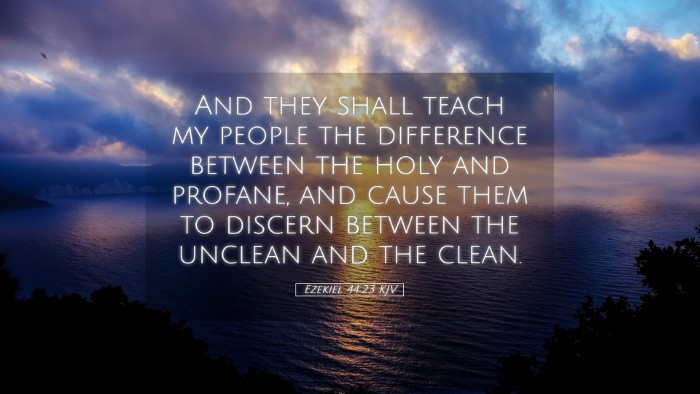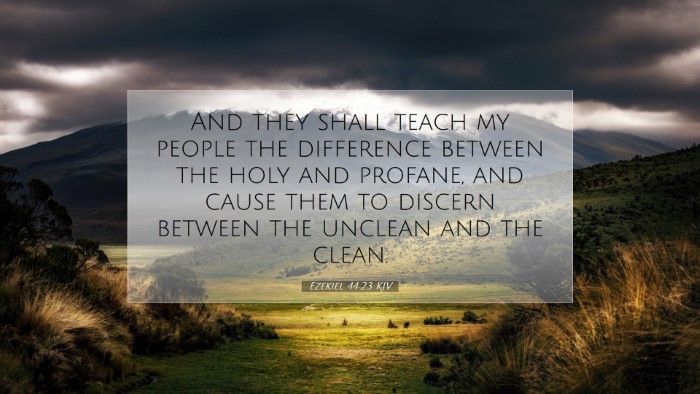Ezekiel 44:23 - Summary of Commentary
The verse reads: "And they shall teach my people the difference between the holy and profane, and cause them to discern between the unclean and the clean." This instruction highlights the pivotal role of the priests in guiding and educating the people of Israel regarding holiness and righteousness, underscoring both the responsibilities of religious leaders and the spiritual needs of the community.
Contextual Background
Ezekiel, a prophet during the Babylonian Exile, emphasizes the need for purity and proper worship in the temple. After the vision of the new temple, the regulations set forth establish a framework for divine worship and community life.
This particular verse occurs in a section where God outlines the reforms necessary for the returning exiles, as well as the qualifications and responsibilities of the priests, emphasizing the importance of maintaining sacredness in worship and daily life.
Commentary Insights
-
Matthew Henry:
Henry notes the importance of the distinction between sacred and profane, asserting that this differentiation is essential for spiritual growth and community identity. The priests, as spiritual leaders, bear the responsibility of instructing the populace on matters of holiness, which is pivotal for maintaining a covenant relationship with God.
He emphasizes that the teachings provided by the priests should lead to a deeper understanding of God's law and a commitment to live in accordance with His commandments. Their role is not only to teach but to embody the holiness they are called to discuss.
-
Albert Barnes:
Barnes elaborates on the responsibilities of the priests, highlighting their function as educators in the ways of the Lord. This role included guiding the common people to recognize the inherent differences between pure and impure, both physically and spiritually.
He comments on the cultural relevance of this teaching, noting that in a society prone to moral decay, the clarity of divine instruction is essential for restoration. This teaches that God desires His people to engage in discernment, a necessary skill for righteous living.
-
Adam Clarke:
Clarke focuses on the aspect of discernment mentioned in the verse. He remarks that the ability to distinguish holy from unholy is a spiritual gift that must be cultivated within the community. It involves a deeper understanding of God's nature and the moral implications of their actions.
Furthermore, he interprets this teaching as an invitation for each believer to pursue personal holiness and to encourage others in their spiritual journeys as well. Clarke envisions a community functioning in unity and purity, founded on knowledge and love of God’s law.
Theological Implications
This verse carries significant theological implications about the nature of holiness in the life of the believer. The concept of teaching and discernment implies that believers are called not only to personal holiness but also to communal accountability in upholding God’s standards.
Moreover, it reflects a broader biblical theme found throughout Scripture, where God's people are called to demonstrate righteousness, influence their surroundings positively, and walk in alignment with divine commands.
Practical Applications
-
For Pastors:
Understanding the importance of teaching discernment should compel pastors to incorporate biblical teaching into their preaching, emphasizing the necessity for congregants to engage with Scripture actively. This responsibility can guide their sermon preparation and continuing education efforts.
-
For Students:
Students of the Bible are encouraged to reflect on their discernment skills in both study and personal practice. Engaging with this text should inspire rigorous theological study that strives for a deep understanding of the sacred and the profane.
-
For Theologians:
Theologians can explore the implications of this verse through various lenses, including ecclesiology and the relationship between law and grace. The need for discernment remains central to discussions of community ethics and ministry practices.
Conclusion
Ezekiel 44:23 serves as a profound reminder of the ongoing need for spiritual education and discernment within the community of faith. The priests' role in teaching the people about what is clean and unclean reveals the heart of God—He desires a people who live in holiness and engage in proper worship.
This verse invites an exploration of our responsibilities as spiritual leaders and community members to promote understanding, accountability, and a vibrant relationship with God.


